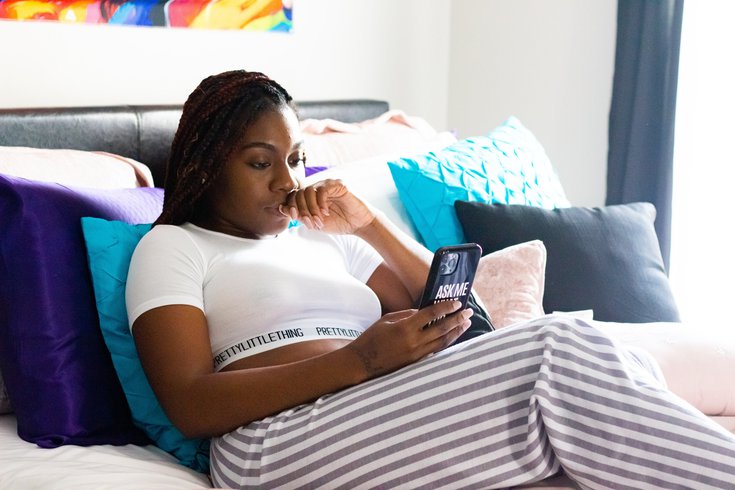
July 10, 2023
 Natasha Hall/Unsplash
Natasha Hall/Unsplash
Bed rotting, a self-care method trending on TikTok, involves spending long periods of time lying in bed in order to cope with feelings of stress or anxiety.
TikTok has become a carousel of self-care trends, with some proving helpful and others dangerous, but one recent trend seems to require a bit less effort than the rest.
"Bed rotting," a phenomenon gaining millions of views across the social media platform, involves choosing to spend lengthy periods of time lying in bed — possibly wrapped in blankets and scrolling social media with snacks in hand — in order to rest or cope with feelings of stress or anxiety.
The trend has prompted varying reactions across TikTok from Gen Z users and beyond. Sleep scientist Vanessa Hill, creator of the PBS series "BrainCraft," praised bed rotting as "perfect" and "100% backed by science." Another user, "snarly carly," said that lying in bed for hours while feeling anxious or depressed has not helped her mental health at all. And influencer Patrick Kelly used bed rotting as an opportunity to partner with a bedsheets company for an advertisement detailing his "Sunday rotting routine."
Forty-two percent of Gen Z people ages 19 to 24 have been diagnosed with a mental health condition, according to a 2022 survey, with anxiety and depression among the most common diagnoses. Thus, it's no wonder young people are seeking simple self-care methods.
"I think it is OK to do if you need it," Jessica Gold, an assistant professor of psychiatry at Washington University School of Medicine in St. Louis, told CNN, "and I have let myself do it, as long as you understand why you are doing it and turn to other coping skills as well."
Bed rotting has been described as a way to obtain much-needed rest amid the hustle and bustle of everyday life, an opportunity for introverts to "refill your social battery, especially after a get-together" and the perfect cure to combat the "Sunday Scaries" and recharge before facing a daunting week of work.
While bed rotting can be beneficial in clearing one's mind, there are possible negative consequences as well. Bed rotting may lead to isolation and cause people to ignore their feelings, or prevent them from participating in self-care activities that may help, experts say.
Habitually laying in bed for extended periods can be a sign of depression, or can increase the risk of the mental health condition. Prolonged bed rotting could lead to weight gain from sedentary behavior and binge-eating, and can mess with sleep schedules.
"Our brains are fine-tuned for sleep in darkness and alertness in light," Ryan Sultan, a board certified psychiatrist, told FOX News. "Lying in bed half-asleep during the day will worsen sleep regulation — and once it's dysregulated, it's a challenge to fix."
Alternate activities suggested by experts include hanging out with a friend, exercising or practicing mindfulness. For people who do not feel up to leaving the house, reading books or journaling may be more beneficial options to watching TV or scrolling social media.
People should not feel pressured to participate in activities that someone else may find relaxing, but instead should focus on finding coping mechanisms that work best for them. Speaking with a therapist can aid in learning other coping skills or in determining the root cause of one's mental health struggles.
"Having fatigue after a long day is normal, but if it is interfering with your work, social life or other important activities, then it is a good idea to discuss your symptoms with a doctor," Kelly Glazer Baron, associate professor of family and preventive medicine at the University of Utah, told CNN.
Follow Franki & PhillyVoice on Twitter: @wordsbyfranki
| @thePhillyVoice
Like us on Facebook: PhillyVoice
Have a news tip? Let us know.